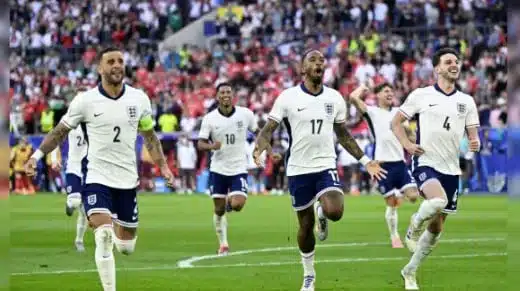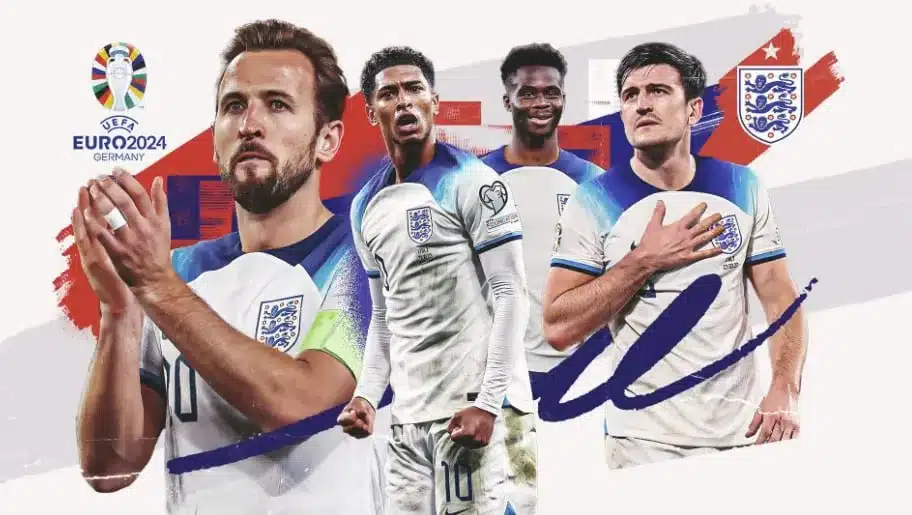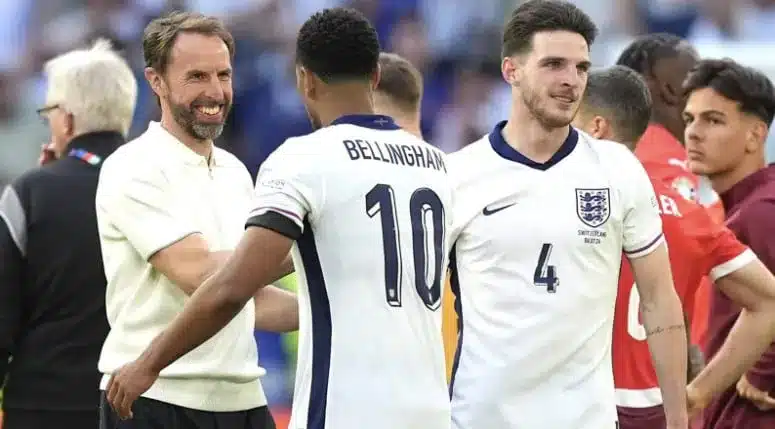The age-old adage rings truer than ever for the Three Lions: you can’t start a fire without a spark. As England labored to a goalless draw against a resilient Slovenia, the overwhelming sentiment among fans and pundits alike was one of profound concern. While the result secured top spot in Group C, the performance raised more questions than it answered about England’s credentials to lift the European Championship trophy.
For those following the tournament on Jeetbuzz, the patterns have become painfully familiar. A squad brimming with individual talent continues to perform as less than the sum of its parts, struggling to find the cohesion, creativity, and cutting edge required to dominate at the highest level.
A First Half to Forget
The opening 45 minutes against Slovenia represented everything that has been wrong with England‘s campaign thus far. It was a display devoid of invention, courage, and progressive intent. The passing was predominantly sideways and backward, reminiscent of a bygone era before the backpass rule revolutionized the game.
There was no meaningful movement off the ball, no bravery in possession, and no width to stretch the opposition. While Marc Guehi looked assured in defense and Phil Foden attempted to make things happen, these were isolated bright spots in an otherwise gloomy performance. The half-time whistle brought deserved boos from the England faithful, with Slovenian goalkeeper Jan Oblak having not been forced into a single difficult save.

The disallowed Bukayo Saka goal—ruled out for a Phil Foden offside in the buildup—only added to the frustration. If this was the promised “reset” following honest discussions after the Serbia and Denmark performances, it appeared another reset would be necessary.
Glimmers of Hope in Second Half Changes
To his credit, Southgate recognized the need for change and made two pivotal substitutions that altered England‘s dynamics. The introduction of Kobbie Mainoo for Conor Gallagher at halftime immediately provided better balance and composure in midfield. Then, the 71st-minute arrival of Cole Palmer for Bukayo Saka brought the biggest cheer of the night from England fans—a telling indication of what the supporters wanted to see.
With Mainoo in midfield, England managed to pin Slovenia back for sustained periods in the second half. The increased tempo and more advanced positioning forced Slovenia to settle for the draw they needed to progress to the knockout stages for the first time in their history.
Cole Palmer’s introduction changed England’s attacking dynamics despite limited minutes on the pitch
Palmer looked immediately at home at international level, bringing the directness and creativity that had been sorely lacking. His performance, though brief, made a compelling case for inclusion in the starting lineup for the last-16 clash on Sunday.
Tactical Dilemmas and Missing Pieces
The contrast between the two teams was stark. Slovenia—a team with limited resources but clear organization and purpose—demonstrated how a cohesive unit can exceed expectations. England, with their embarrassment of attacking riches, continue to underwhelm.
As noted by Jeetbuzz football analyst Michael Cartwright: “The problem isn’t the quality of players—it’s the system and how they’re being utilized. Southgate is trying to fit square pegs into round holes, and it’s preventing these exceptional talents from expressing themselves.”
Kobbie Mainoo’s advanced central positioning offered England more creativity compared to Conor Gallagher’s deeper role
The performance inevitably led to questions about absent players who might have offered different qualities. An in-form Jack Grealish, Marcus Rashford, or Raheem Sterling could have provided the directness and dribbling ability that was so obviously missing against deep-lying defenses.
There’s also a growing argument for revisiting traditional strike partnerships. A front two of Harry Kane alongside Ollie Watkins or Ivan Toney would likely offer more potency against defenses content to sit deep—a scenario England will continue to face throughout the knockout stages.
The Road Ahead and Southgate’s Future
As England finished top of their group amidst boos and thrown plastic cups aimed at Southgate, the reality is that the tournament begins anew in the knockout phase. The draw theoretically becomes more favorable, but performances must improve dramatically.
Sunday’s last-16 match could represent a watershed moment for Southgate’s tenure. Despite the Football Association’s desire for him to continue, another underwhelming performance might make his position untenable. When asked about his future in Saturday’s pre-match press conference, Southgate will undoubtedly deflect focus onto the immediate challenge—the right approach for a manager who always puts the team first.

The fundamental question remains: can Southgate find that missing spark before it’s too late? The introduction of Mainoo and Palmer offers hope, but bolder selection decisions may be required if England are to progress deep into the tournament.
England’s Euro 2024 Struggles: Where is the Spark for Jeetbuzz?
England‘s group stage performance has been concerning, but not yet terminal. The talent within the squad is undeniable, but unlocking it requires tactical flexibility and courage from the management. The introductions of Kobbie Mainoo and Cole Palmer demonstrated that solutions exist within the current group—the question is whether they will be utilized from the start rather than as reactive measures.
As England prepares for knockout football, the margin for error disappears entirely. The team must rediscover their identity and attacking verve quickly, or risk another tournament ending in what might be termed “dancing in the dark.”
What changes would you make to England’s starting lineup? Share your thoughts and follow Jeetbuzz for continued coverage of England’s Euro 2024 journey.

